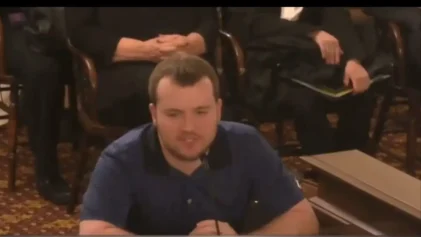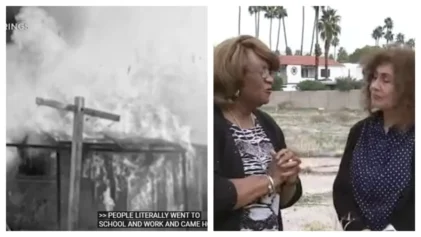A Minnesota education board’s decision to reject Jeronimo Yanez, the ex-officer who shot Philando Castile, from receiving his teaching license was affirmed by the state court of appeals.
This week’s ruling comes after Yanez was initially rejected by the state Professional Educator Licensing and Standards Board in 2020. He filed an appeal, but the decision was upheld by a judge who reportedly pointed out his “immoral character or conduct.”
In the 2021 ruling, the judge also said Yanez “prejudged Castile in a manner that indicated ‘racial bias, microaggressions, and negativity bias’ that would be ‘detrimental to students, especially students of color,” according to CBS News.

Castile was only 32 years old when Yanez fatally shot him during a traffic stop in Minnesota in 2016. The former cop worked for the St. Anthony police department. The immediate aftermath of the killing of the beloved school cafeteria supervisor, which sparked nationwide protests, was captured on cellphone video by his girlfriend, Diamond Reynolds. Her 4-year-old daughter was inside the car when the incident happened.
Yanez was charged but later acquitted of manslaughter. He left the police force and started working as a part-time Spanish teacher. After his first denial, he pushed for a second appeal, arguing that the “immoral character or conduct” point was” unconstitutionally vague,” per CBS News.
In 2022, the court asked the board to expand on their reasoning for why he should not be able to teach. They highlighted his racial profiling, how he opened fire into a car that had two other passengers, and cited the long-term impact on Castile’s family, the outlet reported.
“We have to think about those children and the trauma they suffered because of what he did,” Castile’s mother, Valerie, previously said.
According to The Associated Press, the board argued that his actions opposed the standing teacher’s code of ethics. The collected evidence played a role in the court’s decision on Monday, which Yanez’s attorney called “biased.”
“Unfortunately, the court was not willing to take up these difficult political issues and instead just rubber stamped the agency’s decision. This whole case is further proof that issues surrounding police are not able to be decided in a fair and unbiased manner,” Robert Fowler told the AP.


